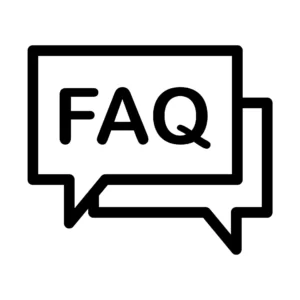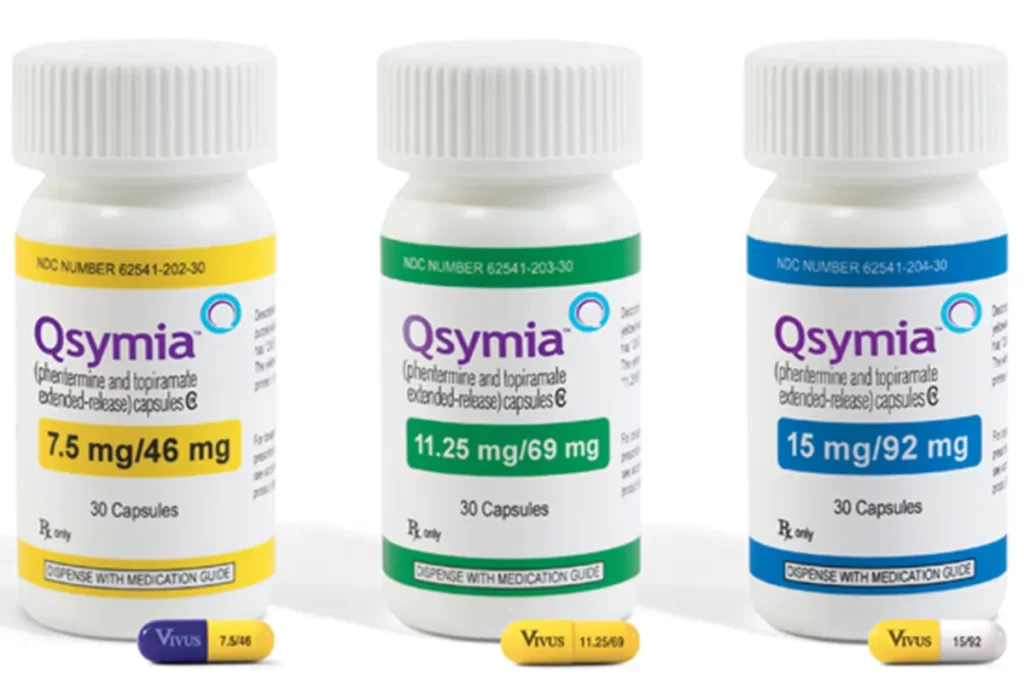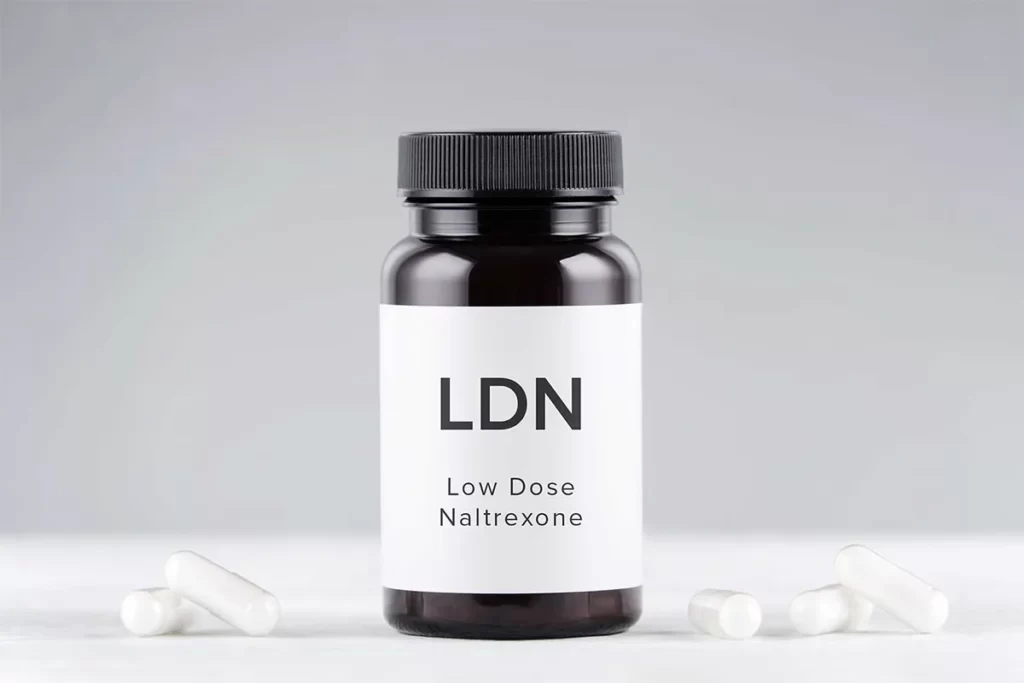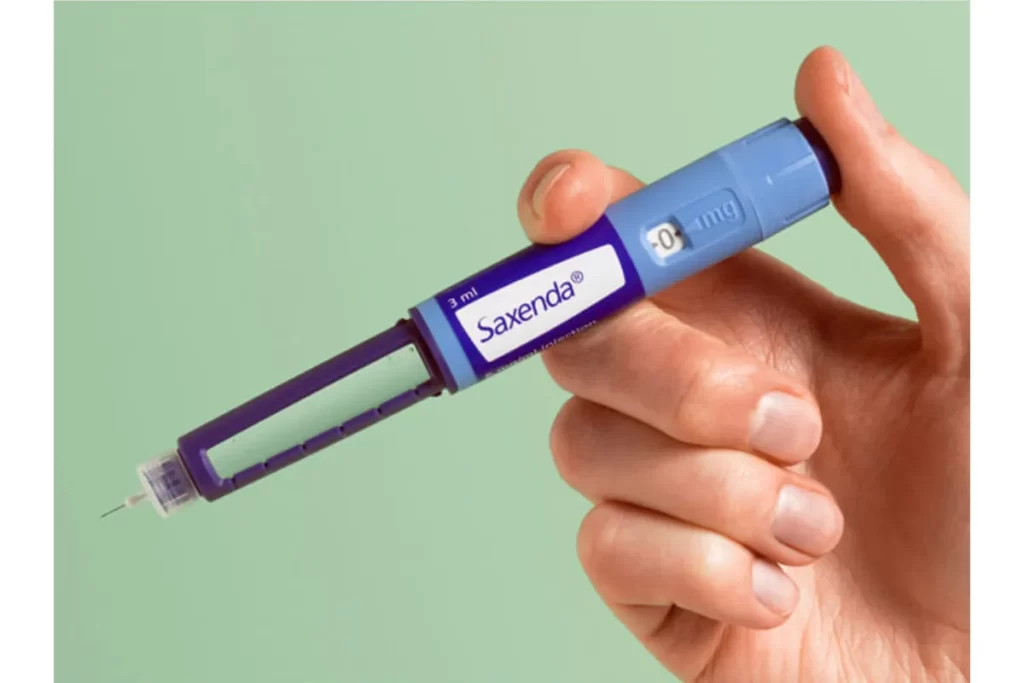The Benefits of Berberine Empty Stomach for Health
-
 Written by
Michael J. Ormsbee
Written by
Michael J. Ormsbee
- LAST UPDATED October 25, 2023
Berberine has long stood the test of time as a powerful natural compound derived from various plants, such as Goldenseal and Berberis. Traditionally, it has been used in Chinese and Ayurvedic medicine for its antimicrobial properties and to treat various ailments. Today, modern science has uncovered Berberine’s multifaceted role in promoting health, from aiding weight loss and stabilizing blood sugar levels to supporting cardiovascular health and more.
It’s crucial to understand how and when to take it to maximize its efficacy. A common query revolves around Berberine empty stomach, with many wondering if it’s safe and effective to consume Berberine on an empty stomach. This guide aims to delve into this question and offer clarity on the best practices for incorporating Berberine into your health regimen. We’ll explore the ideal timings, dosage, and essential tips to unlock the full potential of this natural wonder.
What is Berberine? Unraveling the Mystery Behind This Powerful Compound and Its Connection with Berberine Empty Stomach
Berberine is a bioactive compound extracted from a variety of plants, such as Goldenseal, Oregon grape, and Berberis, to name a few. This alkaloid has a vibrant yellow color and has been used in traditional Chinese medicine and Ayurvedic medicine for centuries. Its historical significance in treating various health conditions has been well-documented, but it’s only recently that science has begun to understand the full extent of its potential.
Origin and Traditional Uses
The roots, stems, bark, and rhizomes of plants containing berberine have been employed in traditional medicine for treating a range of ailments. Its uses varied across different cultures and traditions, but most commonly, berberine was utilized for its antimicrobial properties to treat infections, and digestive issues, and even as a topical application for wound healing.
In Chinese medicine, berberine-rich plants were used in the treatment of gastrointestinal infections, diarrhea, and other digestive problems. Similarly, in Ayurvedic medicine, berberine-containing herbs like Indian Barberry were used to treat dysentery and other digestive ailments.
Modern Science and Berberine
Recent research has shed light on the potential health benefits of berberine beyond its traditional uses. It has been found to play a crucial role in managing diabetes, and cholesterol levels, and even aiding weight loss. Berberine works by activating an enzyme called AMP-activated protein kinase (AMPK), often referred to as the “metabolic master switch.” This activation regulates metabolism and helps maintain energy balance within the cells.
The connection between Berberine empty stomach has been a topic of interest in the health community. It is often recommended to take berberine on an empty stomach to improve its absorption and effectiveness. However, it’s crucial to note that while berberine can be taken on an empty stomach, some individuals might experience gastrointestinal discomfort. Therefore, it’s best to start with a lower dose and monitor how your body reacts before increasing the dosage.

The Power of Berberine for Health: Unveiling the Robust Health Benefits and the Intriguing Connection with Berberine Empty Stomach
The health benefits of Berberine are indeed wide-ranging, covering various aspects from weight loss to heart health, and even extending to potential liver benefits and anti-microbial properties.
Weight Loss Wonders: How Berberine Aids in Shedding Pounds
Berberine plays a significant role in weight management. Research indicates that it can help regulate metabolism, improve insulin sensitivity, and enhance the breakdown of fats, all of which contribute to weight loss. By activating the AMPK enzyme, known as the “metabolic master switch,” Berberine helps to maintain energy balance within the cells, which is crucial for weight management. Additionally, Berberine’s impact on blood sugar levels can also contribute to weight loss, as stabilized glucose levels can help to control cravings and improve overall energy levels.
Stabilizing Blood Sugar: Berberine’s Role in Glucose Management
The impact of Berberine on blood sugar levels is profound. Studies have shown that it can be as effective as some diabetes drugs in managing blood sugar levels. This is achieved by improving insulin sensitivity, increasing glucose uptake by cells, and even influencing the production and release of insulin by the pancreas. By stabilizing blood sugar levels, Berberine can help to prevent the peaks and troughs that can lead to cravings and energy slumps, thus aiding in overall glucose management.
Protecting Your Heart: Benefits for Cholesterol and Cardiovascular Health
Heart health is another significant area where Berberine has shown promising results. It has been found to help lower cholesterol levels, reduce blood pressure, and improve overall cardiovascular function. Berberine can help to reduce the levels of LDL (bad) cholesterol while increasing HDL (good) cholesterol, which is beneficial for heart health. Additionally, its potential anti-inflammatory and antioxidant properties can further contribute to improved cardiovascular health by protecting the heart and blood vessels from damage.
Other Health Perks: From Candida Elimination to Potential Liver Benefits
Beyond its impact on weight loss, blood sugar levels, and heart health, Berberine also has other health benefits. It has antimicrobial properties that can help to eliminate candida and other harmful bacteria. This can be particularly beneficial for individuals suffering from digestive issues or infections. Furthermore, preliminary research suggests that Berberine may have potential liver benefits, as it has been shown to improve liver function and protect against liver damage in some studies.
The question of Berberine empty stomach often arises when discussing the best way to take this supplement. While it is often recommended to take Berberine on an empty stomach to improve its absorption and effectiveness, it’s important to note that some individuals may experience gastrointestinal discomfort. Therefore, it is best to start with a lower dose and monitor how your body reacts before increasing the dosage.
The health benefits of Berberine are indeed powerful and wide-ranging. From aiding in weight loss and stabilizing blood sugar levels to protecting your heart and offering potential liver benefits, Berberine is a versatile and effective natural supplement. The Berberine empty stomach approach can be beneficial for maximizing absorption, but it’s essential to listen to your body and consult a healthcare professional to find the most suitable dosage and timing for your needs.

Best Time and Way to Take Berberine: Unraveling the Secrets of Maximizing the Efficacy of Berberine Empty Stomach
Determining the best time and way to take Berberine can significantly impact its effectiveness. The Berberine empty stomach method, timing concerning meals, and the specific goals of the user all play a vital role in optimizing the benefits of this powerful supplement.
Morning vs. Night: When should you take your dose?
The debate of “when should I take Berberine, morning or night” is a common one. The truth is, the optimal time may vary from person to person. Some may find that taking Berberine in the morning helps to boost energy levels and stabilize blood sugar throughout the day. In contrast, others may prefer taking it at night to capitalize on its potential benefits for metabolism and glucose management while sleeping.
Pre-Meal, Post-Meal, or Empty Stomach? What research and users on platforms like Reddit suggest
When it comes to taking Berberine, one common question is whether it should be taken before or after meals, or on an empty stomach. While some suggest that taking Berberine empty stomach can enhance its absorption, others find that taking it with food can help mitigate potential gastrointestinal discomfort. Platforms like Reddit are filled with user experiences and discussions around “berberine before or after meal Reddit” and “taking Berberine after meal,” showcasing the varying opinions and experiences of users.
The Weight Loss Perspective: Is there an optimal timing for those looking to shed pounds?
For those looking to leverage the weight loss benefits of Berberine, timing can be a crucial factor. Questions like “best time to take Berberine for weight loss” and “how long does it take for Berberine to work for weight loss” are prevalent. Research suggests that taking Berberine in conjunction with meals may help to maximize its impact on metabolism and glucose management, thus aiding in weight loss. However, it’s essential to note that individual responses may vary, and finding the right timing may require some trial and error.
Pre-Bedtime Consumption: Is it a Wise Choice?
The question of “can I take Berberine before bed” is another aspect to consider. While there is no concrete evidence to suggest that taking Berberine before bed has specific benefits, some individuals may find that it helps to stabilize blood sugar levels during the night, which could be particularly beneficial for those with diabetes or insulin resistance.
Finding the best time and way to take Berberine requires a personalized approach. While the Berberine empty stomach method may work for some, others may prefer taking it with food to avoid potential gastrointestinal discomfort. Ultimately, it’s crucial to listen to your body, consult with a healthcare professional, and consider your specific goals when determining the optimal timing and method for taking Berberine.
Understanding Dosage and Bioavailability: Navigating the Intricacies of Berberine Empty Stomach for Optimal Health Outcomes
Mastering the dosage and comprehending the bioavailability of Berberine is crucial in unlocking its full potential. Berberine empty stomach can play a pivotal role in enhancing its bioavailability, directly influencing the effectiveness of this potent compound.
The importance of how your body absorbs Berberine
Berberine is known for its low bioavailability, which means that when taken orally, only a small percentage enters the bloodstream. This is where the Berberine empty stomach strategy can make a significant difference. When Berberine is taken on an empty stomach, it may enhance absorption, as there is less interference from other compounds found in food. The bioavailability of Berberine is also influenced by several factors, including its metabolism in the liver and interactions with various enzymes in the body.
Recommended dosages for various health goals
The recommended dosage of Berberine can vary depending on the health goals one aims to achieve. For weight loss, studies have shown that a dosage of 500mg taken three times a day can be effective. On the other hand, for managing blood sugar levels, a similar dosage is recommended. It is important to note that the Berberine empty stomach method can be applied to enhance the absorption of the compound, potentially leading to more significant health benefits.
Overdoing it: Potential risks and side effects
While Berberine is generally considered safe, it is important to be cautious of potential risks and side effects, especially when taken in excess. Overconsumption of Berberine can lead to various adverse effects, such as gastrointestinal discomfort, constipation, and low blood sugar levels. One crucial question that often arises is, “Can Berberine damage the liver?” While there is no concrete evidence to suggest that Berberine directly harms the liver, it is always advisable to consult with a healthcare professional before incorporating it into your regimen. Additionally, another pertinent inquiry is, “What happens if you take Berberine long-term?” Long-term usage of Berberine should be monitored closely, as there is limited research on its long-term effects.
Understanding the intricacies of dosage and bioavailability is essential when incorporating Berberine into your health regimen. The Berberine empty stomach method can significantly enhance the absorption of this compound, potentially leading to more pronounced health benefits. However, it is crucial to be mindful of the recommended dosages for various health goals and be aware of potential risks and side effects associated with overconsumption. As always, consulting with a healthcare professional before making any significant changes to your health regimen is advisable.
The Long-Term Perspective: Unraveling the Full Potential of Berberine Empty Stomach in Your Wellness Journey
Delving into the long-term effects and safety considerations of Berberine, particularly when taken on an empty stomach, offers a panoramic view of how this compound can be integrated into your health regimen over time.
Duration for noticeable effects: From weight loss to blood sugar stabilization
One of the primary questions people have is, “How long does Berberine take to work?” The time it takes to observe significant changes can vary based on individual health conditions and the specific health goals one is aiming to achieve. When focusing on weight loss, many wonder, “How long does it take for Berberine to work for weight loss?” Clinical studies suggest that noticeable weight loss can be seen within a 12-week period when combined with a balanced diet and regular exercise.
The principle of Berberine empty stomach is especially crucial when looking at its effects on blood sugar stabilization. The emptiness of the stomach can enhance the absorption of Berberine, making it more effective in managing glucose levels in the bloodstream. This can be particularly beneficial for individuals with diabetes or those looking to maintain optimal blood sugar levels for overall well-being.
Safety and considerations for prolonged use
While the potential health benefits of Berberine are evident, it is imperative to discuss the safety and considerations for prolonged use. The Berberine empty stomach concept can play a vital role in maximizing the efficacy of the compound. However, it is crucial to be aware of the body’s response to Berberine over time.
When considering long-term usage, it is essential to monitor any changes or side effects that may occur. Consulting with a healthcare professional periodically can provide insights into whether the prolonged use of Berberine is suitable for your specific health needs. As with any supplement or medication, it is crucial to adhere to the recommended dosages and guidelines to avoid potential risks and complications.
The long-term perspective of Berberine’s effects on health is a fascinating topic that encompasses various aspects, from noticeable changes in weight loss and blood sugar levels to the safety and considerations for prolonged use. The principle of Berberine empty stomach is integral to unlocking the full potential of this powerful compound, potentially leading to more pronounced and sustainable health benefits over time. Always remember that consultation with a healthcare professional is vital before making any significant changes to your health regimen, ensuring a safe and effective wellness journey.
Common Questions and Myths Debunked: Getting to the Bottom of Berberine Empty Stomach Misconceptions
Berberine, as a natural compound with a variety of health benefits, has sparked numerous questions and myths that we aim to address in this section. From its interaction with food and other supplements to the ideal time for consumption, let’s delve into the common queries and debunk the myths surrounding Berberine empty stomach.
Firstly, let’s tackle the prevalent question, “Can I take Berberine with food?” The Berberine empty stomach concept is significant here. While it’s not strictly necessary to take Berberine on an empty stomach, doing so may enhance its bioavailability, allowing the body to absorb the compound more efficiently. This means that taking Berberine on an empty stomach could potentially increase its effectiveness in managing blood sugar levels and aiding weight loss.
On the other hand, some people may experience stomach upset when taking Berberine without food. In such cases, it’s advisable to take Berberine with a small amount of food to mitigate any potential gastrointestinal discomfort. The key here is to find a balance that works best for your body and health needs, always keeping the Berberine empty stomach guideline in mind.
Another frequent query is, “Can you mix Berberine with other supplements or medications?” The answer to this question largely depends on the specific supplements or medications in question. While Berberine can be safely combined with some supplements or medications, it can interact with others, potentially reducing their effectiveness or leading to adverse effects. It’s essential to consult with a healthcare professional before combining Berberine with other supplements or medications to ensure safety and optimal results.
Furthermore, let’s debunk some common myths regarding Berberine empty stomach. Some people believe that taking Berberine on an empty stomach may lead to liver damage. However, there is no scientific evidence to support this claim. In fact, some studies suggest that Berberine may have potential liver-protective effects. Again, the key is to follow the recommended dosages and consult with a healthcare professional to determine the most appropriate way to incorporate Berberine into your health regimen.
While there are various misconceptions and queries surrounding Berberine empty stomach, it is crucial to rely on scientific evidence and professional advice when making decisions about its consumption. Understanding the potential interactions with food and other supplements or medications, as well as debunking common myths, can lead to a more informed and effective use of Berberine for achieving optimal health benefits. Always remember to consult with a healthcare professional before making any significant changes to your health regimen to ensure safety and efficacy.

FAQs about Berberine Empty Stomach
Should you take berberine with or without food?
The decision to take berberine with or without food depends on individual tolerance and specific health needs. While taking berberine on an empty stomach, referred to as Berberine empty stomach, can enhance its bioavailability and effectiveness in managing blood sugar levels and aiding weight loss, some people may experience gastrointestinal discomfort. In such cases, it is advisable to take berberine with a small amount of food to mitigate potential stomach upset. It is essential to listen to your body and find a balance that works best for you. Consulting with a healthcare professional can also provide personalized guidance on how to incorporate berberine into your health regimen.
What is the best time to take berberine?
The optimal time to take berberine depends on individual health goals and lifestyle. Some people prefer taking berberine in the morning to capitalize on its potential benefits for blood sugar management throughout the day, while others may find it more convenient to take berberine at night. There is no definitive answer, and it ultimately comes down to personal preference and how berberine fits into your daily routine. The critical factor is to be consistent with the timing to maximize its benefits.
Should you take berberine in the morning or at night?
The decision to take berberine in the morning or at night is subjective and can vary based on individual health goals and lifestyle. Some people find that taking berberine in the morning helps stabilize blood sugar levels throughout the day, while others may prefer taking it at night to support overall health while they sleep. Ultimately, the key is to be consistent with the timing, regardless of whether you choose to take berberine in the morning or at night, to ensure optimal benefits.
Can I take berberine while fasting?
Yes, you can take berberine while fasting. In fact, taking berberine on an empty stomach, or Berberine empty stomach, can potentially enhance its bioavailability and effectiveness in managing blood sugar levels and supporting weight loss. However, some people may experience gastrointestinal discomfort when taking berberine without food. If you experience any adverse effects, it is advisable to take berberine with a small amount of food or consult with a healthcare professional for personalized guidance.
Does berberine curb hunger?
There is some evidence to suggest that berberine may help regulate appetite and reduce hunger, potentially aiding in weight loss. Berberine has been shown to improve insulin sensitivity, stabilize blood sugar levels, and support overall metabolic health, all of which can contribute to reduced hunger and improved weight management. However, more research is needed to fully understand the extent of berberine's effects on appetite regulation. As always, it is essential to consult with a healthcare professional before incorporating berberine into your weight loss regimen to ensure safety and efficacy.






